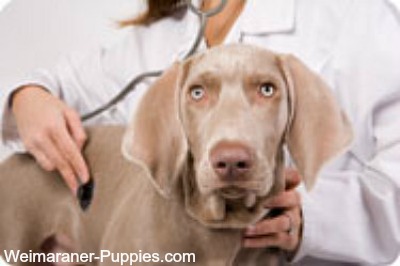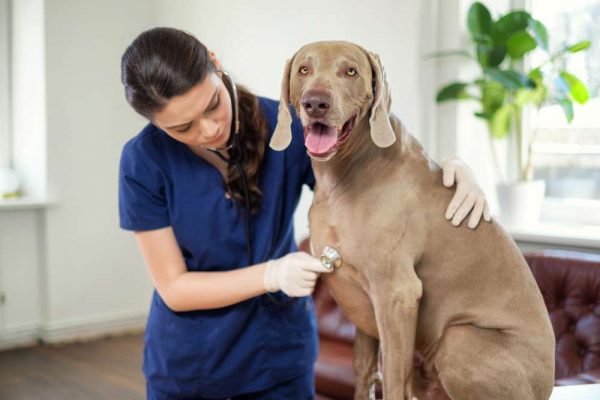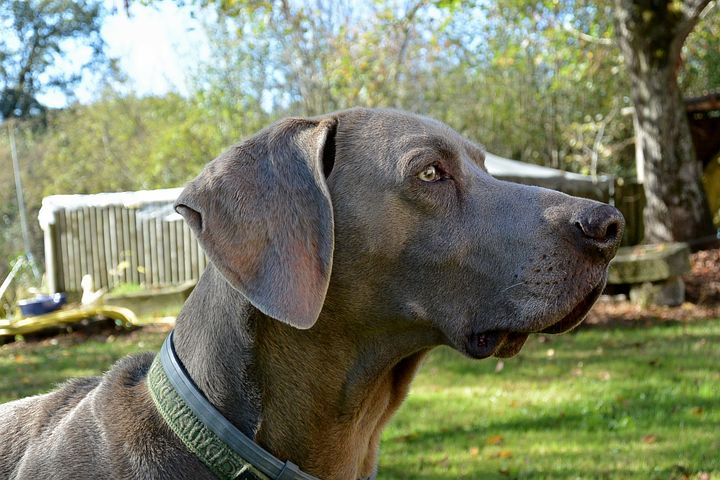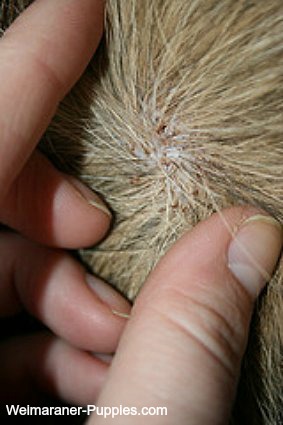Dog bloat symptoms appear within an hour or two after a dog has eaten a big meal. Quick diagnosis and treatment can save your dog’s life.
So, if you have a dog whose breed is prone to getting bloat, it is important to be able to recognize the symptoms, so that you can take your dog to the vet fast, if you see symptoms of bloat!
Bloat in dogs is most commonly seen after a deep chested dog has eaten an large meal, followed by exercise. Sometimes we see bloat after a dog has gorged himself with large amounts of water. After either of these events, the dog usually tries to vomit.

Most Common Dog Bloat Symptoms
Some signs of bloat that you may see are:
- Distended abdomen – Swelling in the abdominal area, with pain. You will actually see the swelling!
- Restlessness and pacing
- Gums are pale
- Discomfort – gas building up in your dog’s stomach causes lots of pain.
- Rapid and difficult breathing
- Whining, groaning
- Dry retching, as your dog tries to vomit, without success.
- Lots of drooling
- Glassy eyes
Some dogs are so uncomfortable that they will assume an odd position. If your dog lies down on his chest with his paws and chest on the ground, with hindquarters elevated, and has some symptoms above, he is distressed. Please don’t confuse this with a “playing” position!
If you see these dog bloat signs, you should take your dog to the vet immediately. It is a medical emergency.
Dog Bloat Symptoms Your Vet Will Look For
In addition to the symptoms that you observe, your veterinarian will look for some additional signs of bloat, such as:
- Rapid weak pulse
- Signs of shock
- Pale mucous membranes
Your veterinarian may use imaging equipment to look at your dog’s stomach to see if it is twisted.
Dog Bloat Treatment
When your vet has diagnosed dog bloat, they will begin treatment immediately. At this point, it is important to stabilize the dog and decompress the stomach and relieve the pressure, as soon as possible.
Your dog’s vet will need to treat shock and the pressure caused by the bloat. If your dog is going into shock, he will need intravenous fluids.
The vet may use a tube inserted through the mouth to the stomach, to relieve the gas. Once the tube is inserted, the gas flows quickly.
In addition, your vet may also remove fluids and food from the dog’s stomach.
Sometimes it is necessary to perform surgery on a dog who has bloat. The vet may do this to determine the condition of the stomach and the spleen, and to reattach the stomach back into its normal position.
Recovery from bloat may be slow, so don’t expect your dog to be out hunting the next week.
Preventing Dog Bloat
If your dog has had bloat, it’s important to take a few precautions to prevent another attack. Dog bloat symptoms can be prevented if you do a few simple things:
- Feed your dog 3 smaller meals a day, instead of one large meal.
- Slow down your dog’s eating, by using a dog bowl designed for fast eaters.
- Limit exercise both before and after meals. Mealtimes should be calm times.
- Limit the amount of fluids your dog drinks, especially after exercising. Slow him down.






Leave a Reply